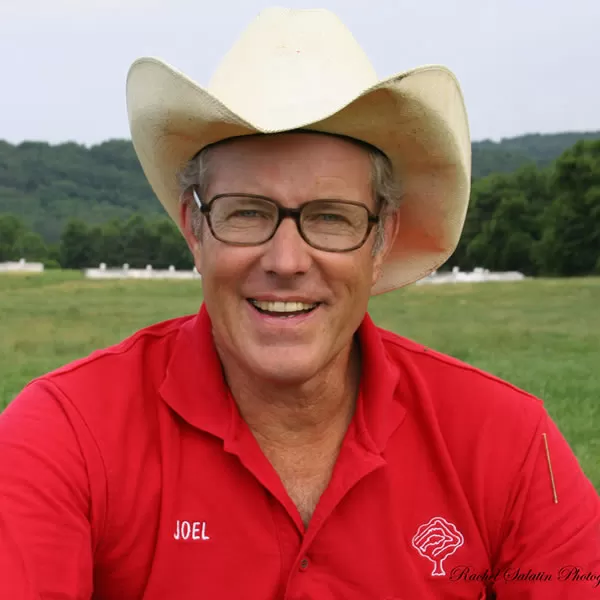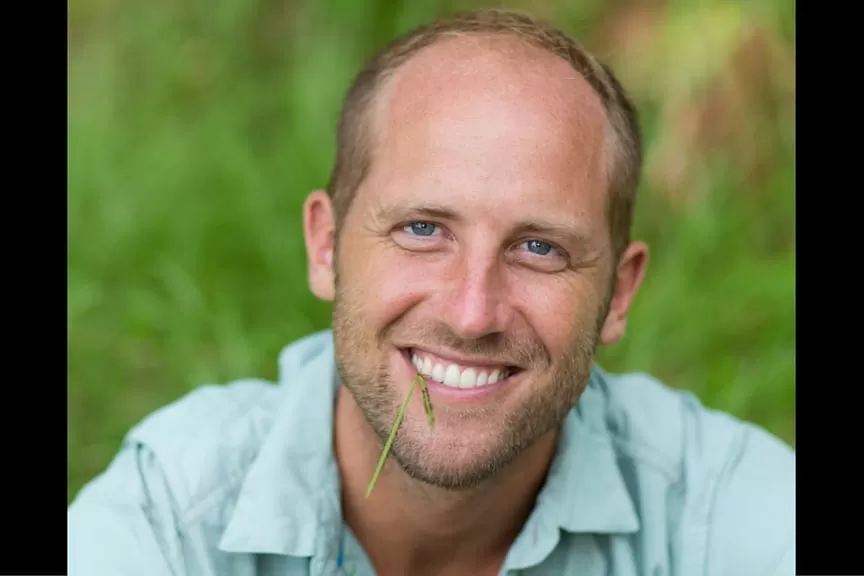During the conversation Rob shares what brought him to the project, some of his choices along the way, just how strict he is when he says he grows or forages all his food, and the potential to accomplish these goals, of a 100% self-procured local diet, in other climates.
Find out more about Rob, his work and other projects, including those mentioned during his introduction, at RobGreenfield.TV.
Two things continue to resonate for me as I edited this interview, and as I put the finishing touches on the show. The first is the project-based approach that Rob takes in these deep immersions, whether for this particular take on food, or when he wore all the trash he created as part of his bike journey, which you can see in the initial picture at his website RobGreenfield.TV.
This project-focused exploration is something all of us can use as a model to dive into a subject we’re interested in, whatever that may be. We can pick one thing and see what we can learn about it, how far we can go, and the lessons we can pick up in a fixed amount of time. Maybe we want to spend the rainy season for our location learning to harvest water. Or to take a growing season to explore a particular plant from seed to harvest in different conditions in our garden. Or to take a year and see how little electricity or fossil fuels we can use.
By creating conditions that test ourselves, we can learn more about our wants, needs, and limits, safely and productively which will, hopefully, lead us to better ways to honor the ethics of permaculture when our time with a given experiment comes to an end. The other side that sticks with me is from near the end where we talked about replicating this project in different climates.
Given that humans populated the globe long before the prevalence of agriculture and subsisted through hunting, foraging, and, to borrow the language from M. Kat Anderson, tending the wild, why can’t we procure all of our food from our local environment? Yes, if this were a full-time endeavor, as Rob is going through, it may mean we spend a lot more time on growing, gathering and preparing food, but what if we use that as an end goal and work our way back to where we are in the moment? To start by buying from our farmer’s markets and co-ops while learning what we can about wild and forageable foods. To take the suggestions of Sara Bir and look for the abandoned fruit trees in our neighborhoods, or ask our neighbors if we can harvest from what they have. Each step brings us closer to a local, nutritious diet.
If we find we cannot gain much of our food in this way, why not? What are the legal, environmental, or social factors keeping us from doing so? What can we do to change these limitations, personally and within our community? What are your thoughts on seeking 100% of your own food? Can you imagine doing this in your local environment? What skills or resources would you need to obtain to make these choices?
Let me know by leaving a comment below and we can continue the conversation.
Resources
Rob Greenfield Growing and Foraging 100% of My Food - Day 111 Update (YouTube)
National Farmers Market Directory (USA)
Trash Me
Green Riders
Free Ride
Orlando Permaculture Meetup Group
Shad Qudsi - Atitlan Organics




